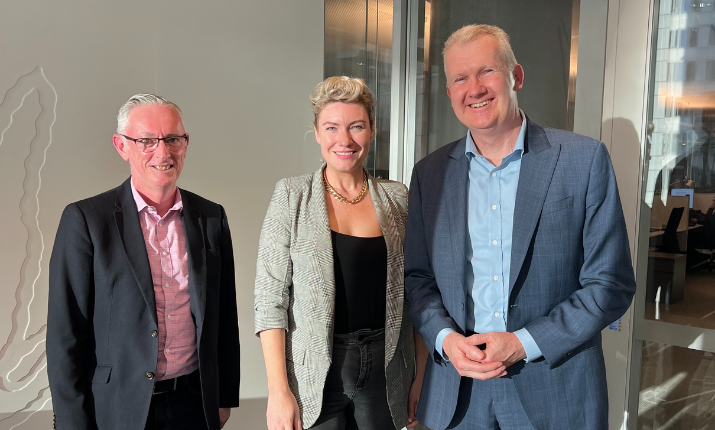Cultural policy review must address poverty wages of arts workers

Paul Murphy and Erin Madeley from MEAA with Arts Minister Tony Burke.
New MEAA Chief Executive Erin Madeley and her predecessor, Paul Murphy, have met with Arts Minister Tony Burke to discuss the future of the arts in Australia.
The meeting on August 19 was was an opportunity to outline what MEAA sees as priorities in the current national cultural policy review, particularly the issues our members face as workers in the arts industry.
MEAA’s submission to the review was lodged on Monday and says any new national cultural policy must aim to lift the wages of arts workers above poverty levels and reinvest in the sector after years of federal government neglect.
It should do so by acknowledging that the cultural workforce is among the most insecure and low paid in Australia and by providing financial and policy certainty.
In its submission, MEAA has suggested more than a dozen policy proposals that are achievable and inexpensive.
MEAA says Australia’s arts and culture sectors have been adrift for almost a decade as a result of poor policy, neglect, and in some cases downright hostility, from the previous Coalition Government.
But the proposed new national cultural policy is an opportunity to press the reset button after a wasted decade.
Among the proposals put forward by MEAA in its submission are:
• Establishing a Code of Conduct (or statutory mechanism) that binds organisations using cultural labour to observe relevant employment and work safety standards.
• Ongoing targets for growth in participation in cultural activities in terms of both practitioners and audience members.
• Greater financial support for First Nations and CALD creatives at both the company and individual artist levels (across arts forms).
• Converting STEM-related educational initiatives to STEAM, where arts and creativity are used to develop critical thinking and bolster overall academic outcomes.
• Embedding artistic and cultural training in schools, as was the approach in the Creative Nation and Renewing Creative Nation policies.
• Properly valuing Australian content by implementing firm rules for broadcasters and streaming services about funding and availability of domestic content.
• Enhanced funding for major institutions such as the Australia Council and Screen Australia, with new funding directed to program diversification to attract new and emerging artists.
• A federal inquiry into the Australian music industry to determine the equity and impact of commercial arrangements (recording contracts and streaming services) on performers.
The full submission is available here.